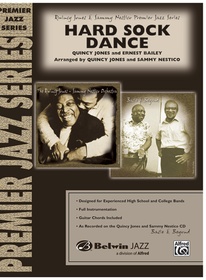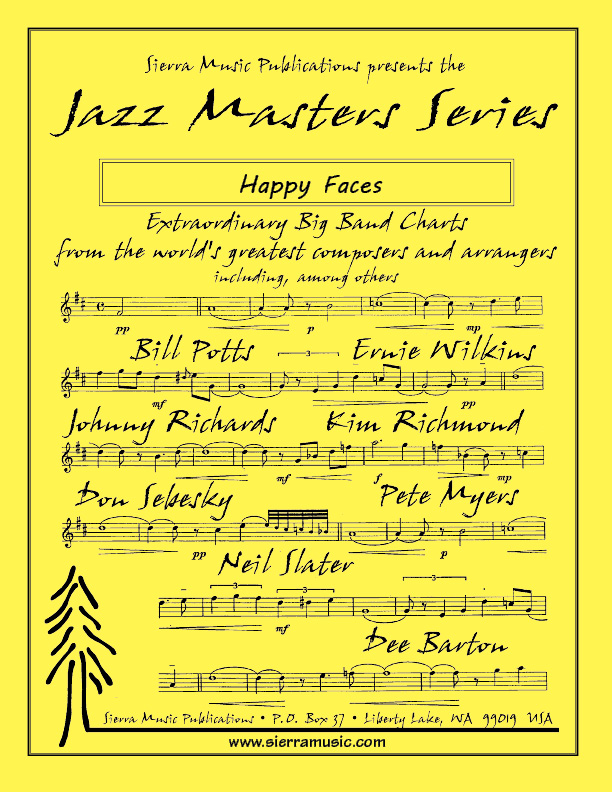JUST WHEN WE'RE FALLING IN LOVE
Recorded by Ella Fitzgerald with the Count Basie Orchestra
Arranged by Quincy Jones, Prepared by Dylan Canterbury, Rob DuBoff, and Jeffrey Sultanof

Cat #: JLP-9620
$75.00This item usually ships within 1 business day.
Questions?
Please call +1-518-587-1102 or email us.
Edition: Jazz Big Band Arrangement with Vocal
Description: Swing - Medium Difficult
Publisher: Jazz Lines Publications
Better known within the jazz community by its instrumental title "Robbins' Nest," Quincy Jones' arrangement of "Just When We're Falling In Love" was written for Ella Fitzgerald and the Count Basie Orchestra, recorded in 1963. This chart did not initially make the cut for the original issue of "Ella and Basie!", eventually being released as an outtake on the 1997 CD reissue of the classic album.
The arrangement begins with a catchy riff in the bass clarinet and bass before the (almost) full ensemble sets up the melody with some light hits. The volume level never gets too overblown throughout the chart, so even during the "louder" parts it is important to maintain a sense of dynamic moderation. With the exception of the 5th trumpet, the entire brass section is in bucket mutes throughout. The melody naturally lends itself to a series of cleverly written call-and-response background figures, either from the woodwinds or an ensemble of flute, bass clarinet, muted trumpet and trombone.
The ensemble shout section at measure 36 is fairly heavily based on the melody, but has enough subtle deviations that it isn't a strict copy job. An interesting device used by Jones at this point is the doubling of the lead trumpet voice (who is playing in bucket mute) in the 5th trumpet part (who is playing in harmon mute). These two players should be listening to each other and matching each others' phrasing so as not to clash with one another. The call-and-response nature of the arrangement continues with some scatted interjections from the vocalist from measure 37 all the way until the melody returns at measure 55 for a gradual fade out over the same introductory bass line.
This arrangement is for featured vocalist with jazz big band, with flute and bass clarinet taking the place of 1st alto sax and baritone sax, respectively (an optional baritone saxophone part is included). There are five trumpet parts as opposed to the traditional four; if your ensemble only has four trumpets available, the 4th part can be dropped in order to adequately cover the important figures in the 5th part. This is not a transcription - it has been prepared from Quincy Jones' original set of parts.
Flute
Alto Saxophone
2 Tenor Saxophones
Bass Clarinet (Or Baritone Saxophone)
5 Trumpets
3 Trombones
Bass Trombone
Guitar
Piano
Bass
Drums
Trumpets 1 & 5: Bb5
Trombone 1: Bb4










